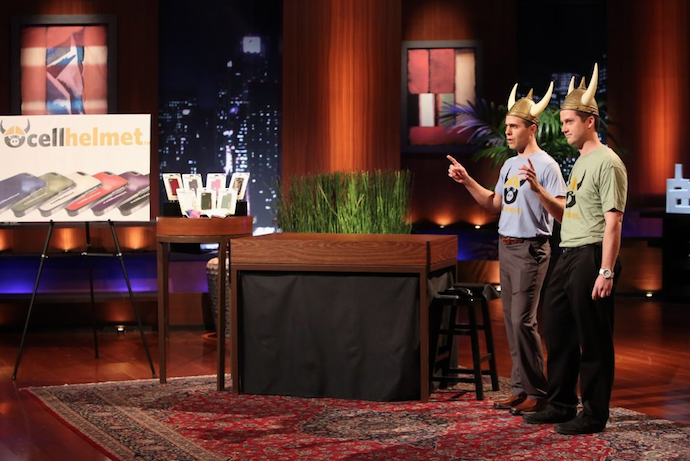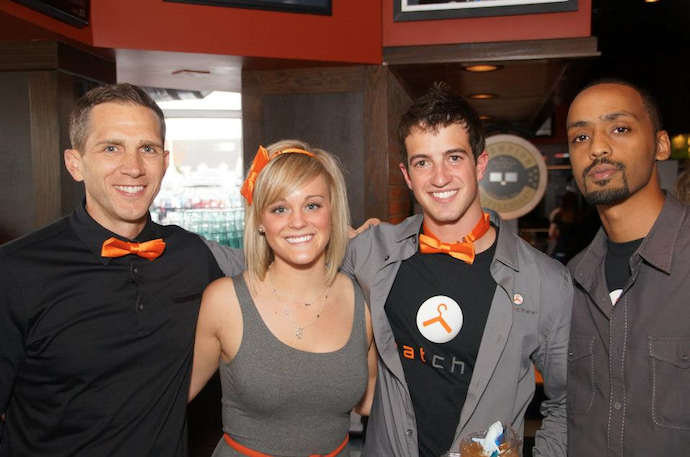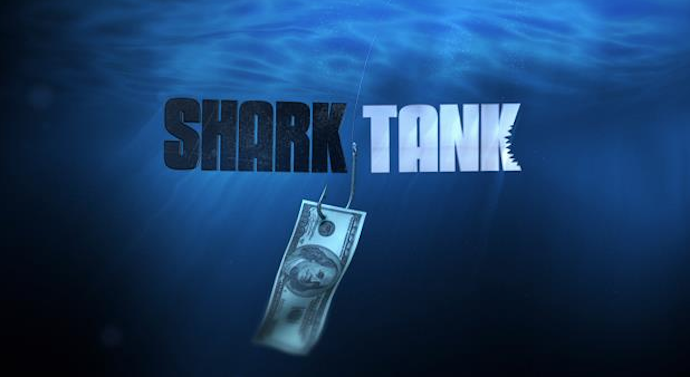5 Great ‘Shark Tank’ Rejects
ABC’s Shark Tank is a huge hit, and for good reason. We love seeing the new products introduced, and the entrepreneurs pitch their ideas as the sharks circle in the tank. And it’s difficult to decide which is more enjoyable – seeing the proposals turn into a deal, or watching the business owners get rejected, walking away, tails between their legs. And although we are sometimes treated to a follow-up report on the success stories, we rarely find out what happens to the rejects after their hopes and dreams are shot down in the tank. Therefore, Wall Street Insanity now brings you 5 great Shark Tank rejects:
5: Self-proclaimed “aging hippie athletes” couple Steven Sasha and Lena Phoenix wowed us when they entered the tank in early February, pitching their Xero Shoes to the multimillionaire investors. Inspired by the huarache Mexican sandal used for running, the footwear consists of a thin rubber sole and nylon-polypropylene laces. The couple sought a $400,000 investment for 8-percent equity of the business. Although “Mr. Wonderful” Kevin O’Leary offered the husband and wife duo an investment deal of $400,000 for 50-percent equity in their “Barefootware” ultra light-weight sandals, they actually turned him down. Unfortunately for the owners of Feel the World Inc., none of the other sharks bit. The couple had the tenacity to counteroffer O’Leary the $400,000 for just 10-percent equity, to which he responded, “You’re dead to me.” Although only two months have passed since the episode’s air date, plenty of bloggers have given Xero Shoes publicity—on top of the free advertisement received on Shark Tank. In the first month since the episode aired, the company generated $150,000 in revenue, and Phoenix said in a press release the sandals would sell even more if the episode were to re-air “when it’s not winter.” Although the couple had hoped more sharks would have bit at their deal, they do not regret walking away from Mr. Wonderful’s offer.
4: One company founder that walked away from “Shark Tank” without an offer now says business is better than ever. Cellhelmet co-founders Mike Kane and David Artuso recently appeared on season three of Shark Tank to pitch their line of iPhone cases that not only promises to protect phones from damage, but comes with a guarantee. If a phone is broken while inside the case, Cellhelmet will fix it—for a $50 handling fee. Compared to dropping $600 on a new phone, it sounds like a great idea, right? But the sharks weren’t biting. Kane and Artuso may have walked away without the $160,000 investment they were seeking, but they say they still came out of the tank as winners. Their email boxes have been buzzing with notes from potential customers and business associates. Since their appearance on Shark Tank, the team has scored a deal with Eldridge Communications—a Verizon Wireless retailer—that not only invested in Cellhelmet but also signed a distribution deal, making the product available in its 15 Pennsylvania stores. Likewise, an additional 200 stores from around the US have expressed interest in Cellhelmet and direct orders for the cases have more than doubled. Prior to the show, about 1,300 units were sold online in total. An additional 1,300 units were sold online in the 24 hours after the show alone.

Image via cellhelmet/Facebook
3: Back in 2011, entrepreneur Shawn Davis—also known as Chef Big Shake—pitched his line of gourmet shrimp burgers to the sharks. Although Davis failed to receive the $200,000 investment he was asking for his creation—a frozen patty blend of shrimp, peppers and spices—his business, CBS Foods, has boomed ever since. Shrimp burgers may sound gross, but they may be one of the shark’s biggest misses of all time. Davis received more than 1,000 voice mails within two days of appearing on Shark Tank. And according to some 2012 reports, within a day or two of the episode’s air date he was approached by 10 to 15 investors, and a year later his sales had already jumped from $30,000 to almost $6 million. The business has also expanded to include five flavors of shrimp burgers: Original, jalapeno, Cajun, Chesapeake and teriyaki. CBS Foods also offers lobster sliders, lobster pot pies and lobster mac and cheese. Shark Tank will feature CBS Foods as a success story during season 3—one of the few “rejects” ever included in the segment. Watch Mark Cuban Tell “Good Morning America” he regrets not investing.
2: Remember the overly-confident business-school graduate/entrepreneur who appeared on Shark Tank last year, seeking an investment in his coat-check technology company? Derek Pacque was so sure his CoatChex system of replacing paper tickets with an electronic database was worth $2 million he turned down one of the best offers ever made to a startup in the tank: $200,000 for 33 percent equity from Mark Cuban. It was quite the exchange. First Cuban’s fellow sharks were aghast that he would make such a sweet offer to such an unestablished business. Then they were all blown over when Pacque walked away from it. So what’s happened to CoatChex since? Pacque was invited to provide CoastChex kiosks at Life in Color, a concert in which paint in thrown on the audience. The CoatChex allowed the 7,000 participants a place to check extra clothes they could change into for the ride home. The brand has also been hired for other events, such as New York’s Fashion Week. The Shark Tank appearance allowed Pacque to move the business beyond his original vision of nightclub service, and CoatChex now has eight full-time staff members, four seasonal managers and between 15 and 75 part-time staff who run the stations on event nights.

Image via Coatchex
1: Our top Shark Tank reject earned its spot on the list because it left the tank without a deal twice. The first time James Martin pitched his patented single-serve premium wine in a glass, Copa Di Vino, in the tank during season two, Kevin O’Leary offered to invest in the company but license the packaging to large wine producers. Martin wasn’t interested in cheapening his product, and walked away from the tank without a deal, confident he could take Copa Di Vino to the next level on his own. Martin was invited back to the tank during season three. By then, he had sold $5 million of his product, but needed an investment to open a second bottling plant and meet demand. O’Leary offered him $600,000 for a 51-percent stake in the company—the same deal he extended in season two. When Cuban expressed interest in Copa Di Vino, O’Leary sweetened his offer to $300,000 for just 12 percent of the company. Then the sharks really started to circle Martin. O’Leary, Cuban and Robert Herjevic joined together to offer $600,000 for a 30-percent stake. When Martin took to long to think about the offer, Cuban and Herjevic pulled out. Then the whole thing blew up and Martin left the tank empty handed for the second time. Did Martin blow it? Doesn’t look that way. Copa Di Vino is now available in 42 states—and Martin retained 100-percent equity in the business.










































